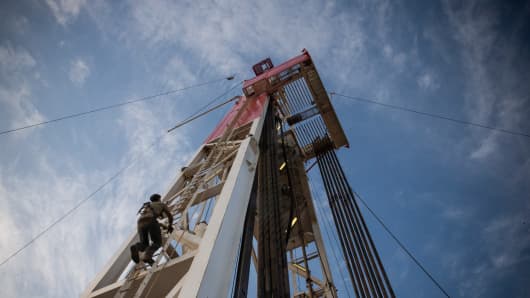There is growing speculation in global oil markets about the possible release of strategic stockpiles held by major industrialized consumers if military action against Syria triggers a surge in benchmark prices that threatens economic growth, strategists and traders told CNBC.
There will probably be a "short-lived spike in and around any U.S. military action, the timing of which is of course uncertain," said Robin Mills, Head of Consulting at Manaar Energy Consulting & Project Management in Dubai. Still, it's "worth watching any moves to ready an SPR/IEA stock release if Libyan disruptions continue, amid Syrian contingency plans," added Mills, referring to the possible release of emergency oil from the U.S. Strategic Petroleum Reserve (SPR) coordinated by the International Energy Administration (IEA).
(Read more: Why oil prices may remain strong, war or no war)
While forecasters appear divided over how severely regional oil production will be effected if Syria is targeted – and much does depend on Iran's response and whether infrastructure in Iraq is hit if retaliation does occur – many believe policy planners in the U.S., Europe and oil-hungry Asia are making preparations for the worst-case scenario.
More than half of the respondents in CNBC's latest poll of oil market sentiment (a little over 59 percent, or 16 out of 27) believe prices will gain this week. Less than a third (8 out of 27) say the Syria premium is already priced in and gains will evaporate when it becomes clear that the immediate impact will be contained in the broader Middle East, which pumps a third of the world's oil. Three respondents, or about 11 percent, expect the market to trade around current levels, CNBC's poll showed.





